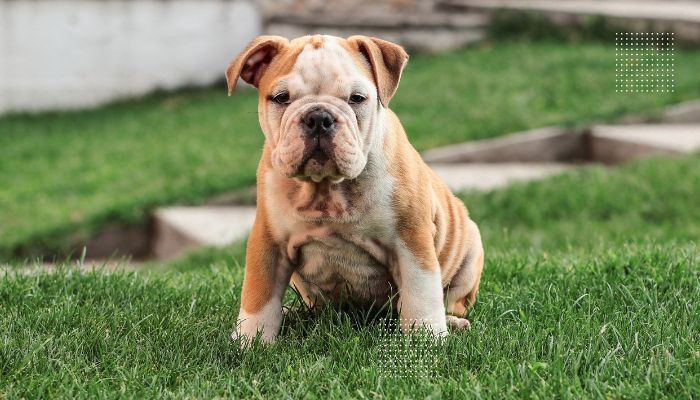
The bulldog is a beloved breed known for its gentle and affectionate nature. With their distinctive appearance and laid-back personality, bulldogs have become a popular choice for families and individuals looking for a loyal and devoted companion.
In this article, we will delve into the unique personality traits of bulldogs and discuss how their physical characteristics contribute to their personality.
We will also cover the importance of training and socialization, as well as considerations for their health and well-being.
Whether you are a current bulldog owner or simply considering adopting one, this article aims to provide a comprehensive understanding of the bulldog’s personality and needs.
Table of Contents
Brief overview of the bulldog breed
Bulldogs are a medium-sized breed with a stocky, muscular build and a wide, flat head. They are known for their wrinkled face and snub nose, as well as their short, smooth coat which comes in a variety of colors. Despite their tough appearance, bulldogs are generally gentle and affectionate with their family and especially good with children. They are also known for their calm and easygoing personality, which makes them a popular choice for families with young children or as a therapy dog.
However, bulldogs can also be stubborn and strong-willed at times, and they may require a bit of extra patience and consistency during training. It is important for potential bulldog owners to be aware of these traits and be prepared to provide the necessary leadership and structure in order to have a well-behaved and obedient dog.
In the following sections, we will explore the unique personality traits of bulldogs in more detail and discuss how their physical characteristics contribute to their personality.
Physical characteristics of bulldogs
In addition to their gentle and affectionate personality, bulldogs are known for their loyalty and devotion to their family. They are generally calm and easygoing, making them a great companion for relaxation and downtime at home. Despite their stocky build and tough appearance, bulldogs are generally not aggressive or prone to barking, making them a good choice for apartment living as long as they receive sufficient exercise.
One of the key physical characteristics that contribute to the bulldog’s personality is their short, smooth coat. Unlike some breeds with long, thick fur that require regular grooming, bulldogs have a low-maintenance coat that only needs to be brushed occasionally. This can be especially appealing for busy families or individuals who don’t have the time or resources for frequent grooming.
Another important physical characteristic of bulldogs is their wide, flat head. This distinctive feature gives them a unique appearance, but it also affects their breathing and can make them prone to certain health issues. Potential bulldog owners should be aware of these considerations and work with their veterinarian to ensure their dog stays healthy and happy.
In summary, the bulldog’s physical characteristics, including their short coat and wide, flat head, contribute to their gentle and affectionate personality, as well as their loyalty and devotion to their family. Despite their calm and easygoing nature, bulldogs can also be stubborn and strong-willed at times, which may require a bit of extra patience and consistency during training.
Bulldog personality traits
Bulldogs are known for their loyal and devoted nature, and they are generally very affectionate with their family. They tend to be calm and easygoing, making them a great companion for relaxation and downtime at home. This gentle and affectionate personality also makes bulldogs good with children and a popular choice for families with young kids.
However, bulldogs can also be stubborn and strong-willed at times, which can make training a bit of a challenge. It is important for potential bulldog owners to be prepared to provide the necessary leadership and structure in order to have a well-behaved and obedient dog. Consistency and patience are key when training a bulldog, as they may require a bit more effort to motivate and persuade than some other breeds.
In addition to their loyalty and affectionate personality, bulldogs are generally calm and easygoing. They are not known for being particularly active or energetic, and they do not require as much exercise as some other breeds. This can make them a good choice for apartment living or for families with limited space or time for exercise. However, it is still important to ensure that bulldogs receive regular exercise (Therefore they are muscular) and mental stimulation in order to stay healthy and happy.
Overall, the bulldog’s unique personality traits include their loyalty and devotion to their family, their gentle and affectionate nature with children, and their generally calm and easygoing disposition. While they can be stubborn and strong-willed at times, with consistent training and patience, bulldogs can make a loving and devoted companion for any family.
Training and socialization
Training and socialization are important considerations for any breed of dog, and bulldogs are no exception. Socializing your bulldog from a young age can help them become well-behaved and comfortable in a variety of situations and environments. This can include introducing them to new people, places, and experiences, such as visiting the park, going for car rides, and attending obedience classes.
When it comes to training, it is important to be consistent and use positive reinforcement techniques. Bulldogs can be stubborn and strong-willed at times, and they may require a bit more effort to motivate and persuade than some other breeds. Consistency and patience are key when training a bulldog, as well as using rewards and praise to encourage good behavior.
It is also important to establish clear rules and boundaries for your bulldog from the beginning, as this will help them understand what is expected of them and help prevent unwanted behaviors from becoming habits.
Providing plenty of mental and physical stimulation can also help keep your bulldog happy and well-behaved. This can include activities such as playing fetch, going for walks or runs, and engaging in interactive toys and games.
In summary, training and socialization are crucial for ensuring that your bulldog grows up to be a well-behaved and obedient companion. Consistency, patience, and positive reinforcement techniques can go a long way in helping your bulldog learn and thrive. Providing plenty of mental and physical stimulation can also help keep your bulldog happy and well-behaved.
Bulldog health considerations
Bulldogs are a unique breed with a stocky, muscular build and a wide, flat head. While these physical characteristics give them their distinctive appearance, they can also make them prone to certain health issues.
For example, bulldogs’ short snouts and wide heads can make them prone to respiratory problems, such as difficulty breathing and overheating. It is important for bulldog owners to be aware of these potential health issues and work with their veterinarian to ensure that their dog stays healthy and happy.
In addition to potential respiratory issues, bulldogs may also be prone to other health concerns such as skin allergies, eye problems, and hip dysplasia. Regular check-ups with the veterinarian, as well as a healthy diet and regular exercise, can help prevent or manage these health issues.
Regular exercise is important for bulldogs to maintain their physical health and well-being, as well as to prevent obesity. Despite their generally calm and easygoing personality, bulldogs still need regular exercise to stay healthy and happy.
This can include activities such as walking, running, or playing fetch. It is important to keep in mind that bulldogs have a shorter snout and may have difficulty breathing during high-intensity exercise, so it is important to monitor their breathing and take breaks as needed.
In summary, bulldogs’ unique physical characteristics, such as their short snout and wide head, can make them prone to certain health issues. It is important for bulldog owners to be aware of these potential health concerns and work with their veterinarian to ensure that their dog stays healthy and happy. Regular exercise and a healthy diet are also important for bulldogs’ physical health and well-being.
Conclusion
In conclusion, bulldogs are a unique breed with a gentle and affectionate personality, as well as a loyal and devoted nature. Their physical characteristics, including their short coat and wide, flat head, contribute to their unique appearance and personality.
Training and socialization are important considerations for bulldogs, as they can be stubborn and strong-willed at times. It is important to be consistent and use positive reinforcement techniques to help them learn and thrive.
Bulldogs may also be prone to certain health issues due to their physical characteristics, such as respiratory problems and skin allergies.
It is important for bulldog owners to be aware of these potential health concerns and work with their veterinarian to ensure that their dog stays healthy and happy. Regular exercise and a healthy diet are also important for bulldogs’ physical health and well-being.
Overall, bulldogs can make a loving and devoted companion for any family, but it is important for potential owners to consider their unique needs and characteristics before adoption. With the right training, socialization, and care, bulldogs can thrive and bring joy to their family for many years to come.
